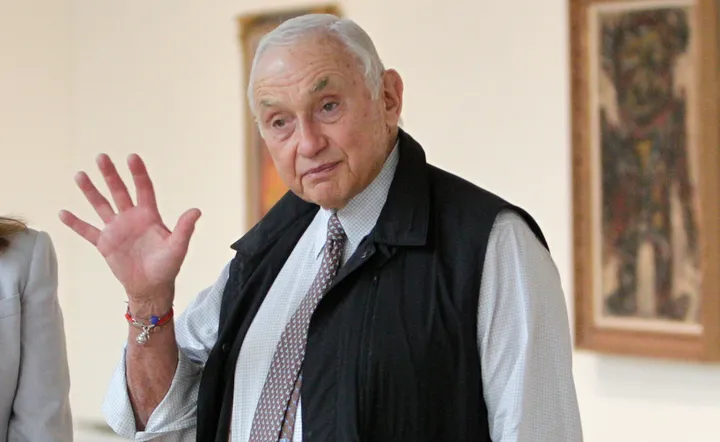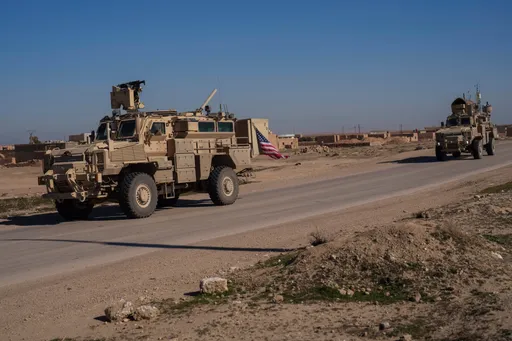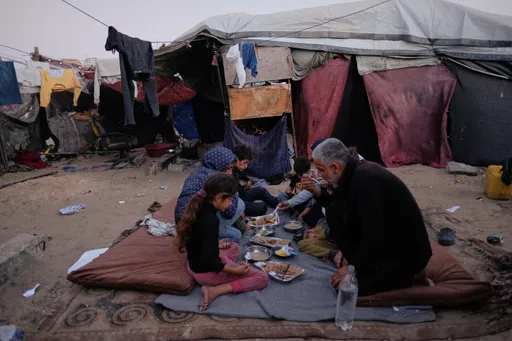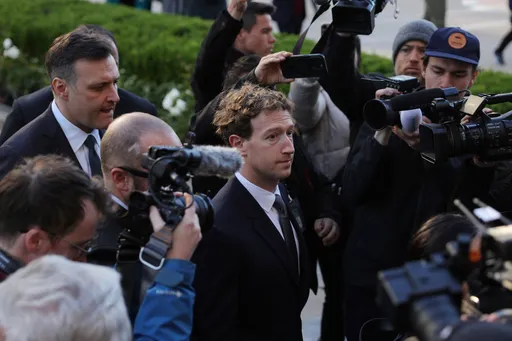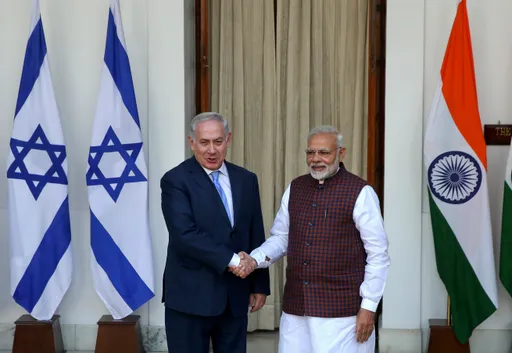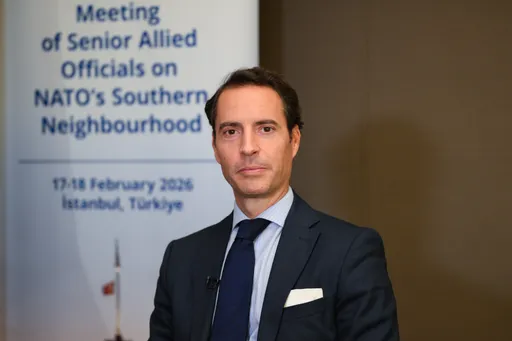I don’t like being in a dark room. It makes me anxious and, as a reflex, I cover my ears. The sound of grenade explosions and a musty smell fills my mind. I picture myself as a little girl sitting in my father's lap with his palms covering my ears; my mother, sitting next to us, holding my two younger brothers tightly as they cry out loudly.
But the sound of bombs coming from outside is deafening. We can barely hear each other screaming.
As I am jolted back to reality, I remember we weren't allowed to play outside after that day. My parents started looking scrawny, and more family members came to stay in our unfinished, mouldy basement.
All I could comprehend as a child was that there were some neighbours who wanted us gone from our city because of our religion.
A couple of weeks later my mum asked me to pack some clothes in my new backpack. I was supposed to start school that autumn and the backpack was a gift from my father that I planned to keep in a nylon cover until the first day of school. I refused and left the backpack hidden in my room. I put two shirts and one pair of pants in a plastic bag.
One day in May 1992, when the morning was unusually warm for spring, my mother, my brothers and I left Sarajevo with the last train. My father stayed back in Bosnia and visited us in Ljubljana just a couple of times, escaping the city under siege using a tunnel.
I didn’t return to Sarajevo for years, never saw my backpack again and that autumn started a school for refugees far away from my friends who stayed in the dark.
The sudden change and the fact that I didn’t know where my father is made me extremely quiet and I almost completely stopped talking.
On my first day of school, I barely said my name in front of thirty or so children from different parts of Bosnia.
All refugees like me, all wearing the same shoes and similar clothes picked up from the Red Cross. Most of them were confused like me and our teacher Mira, a refugee herself, would try to cheer us up with stories about Bosnia’s mountains and rivers. At times, she would sing to us, too.
The feeling of uncertainty, the fear of what will happen next, the racing thoughts exhausted me almost all the time. My childhood dreams appeared far away, somewhere tucked away in my home, Sarajevo.
The departure from home, the trauma of losing everything you hold dear, turned me into a recluse. I refused to grow attached to people or things or places because I felt I might have to leave any time.
Other children in my classroom felt the same but eventually, we accepted our reality and started to talk to each other again.
Every few days someone new would come or someone would leave. The chairs were never empty. I remember when my friend Amra left for Canada. I cried myself to sleep for weeks.
My country is still reeling
I would hide all my troubles from my mother who already had too much on her plate.
She started working in a refugee centre in Ljubljana and I would go there every day after school.
Hundreds of people, mostly women and children, arrived there in ones and twos or in large groups almost every day.
Many of them came empty-handed, leaving behind everything they owned, and I vividly remember their scared faces.
I saw women who were raped and children who lost their fathers and witnessed how my mother's life transformed completely.
She struggled a lot as a hijabi woman during communism in the former Yugoslavia whose voice was often ignored and suddenly she found herself in a foreign country trying to help other women whose traumas were unbearable.
Those years spent watching my mother at work will leave a huge impact on me and could be the reason why I’ll become a journalist one day.
Decades later, when I visited a refugee camp Atma in Idlib in Syria I caught myself saying the same sentences to little girls there that my mum used to say to the girls arriving from Eastern Bosnia to that small refugee centre in Ljubljana: That one day, things will be better, that they will find a way to cope with their traumas and that one day they will leave those wet tents and go back home.
But, like my mother more than twenty years ago, I couldn’t promise them anything either.
And like her, I would go silent knowing there are those who can change their faith but chose not to.
Four years later, I returned to Bosnia after the peace accord was signed. And over two decades later, my country is still reeling, the divisions and traumas are very much alive.
My life went back on track slowly and I’ve managed to find some of my classmates from the refugee school recently on Facebook. Most of them live in Germany, the US, Canada, Sweden, but very few have returned back home.
As a journalist, I’ve read a lot about the Holocaust, about the war in Bosnia, Rwanda, Syria and Myanmar and soon realized what my mother meant when she said there are those whose lives matter more and how it takes longer for the help to arrive for some.
This morning I’ve recorded another episode of my weekly programthat is covering the Balkans.
The EU countries are bracing for another wave of refugees from Afghanistan. Some experts believe we should be prepared for one of the most dramatic humanitarian crises in recent history.
And in my region, the Balkans, some countries, like Kosovo, North Macedonia and Albania have already taken in thousands of refugees.
The people of the Balkans are transforming hotels into refugee centres. Others, like Greece, are building walls to prevent people from coming in. Or like Croatia, which is pushing them back from their borders.
There are even reports of various brutalities carried out by the Croatian police and witnesses say the families have been separated while hundreds of Afghan families are blocked at the border between Croatia and Bosnia.
They live with their children in abandoned buildings without water or electricity. There are no schools for refugees or centres like the ones set up in Ljubljana in the nineties. There are no teachers like Mira to cheer them up and read stories.
And today, things are different in Slovenia, too.
The current Prime Minister of Slovenia, which is part of the EU today, Janez Jansa says the migration is a threat to Europe and its people. He says demography is the key and that “without Europeans, there is no Europe”. He believes the EU borders should remain closed and if they open it the European Union will disappear.
And the other day, I read a new story saying Croatian officials will take in twenty Afghan refugees. Yes, less than the number of us in that small improvised classroom.
Back then, we just wanted to escape the darkness that ruined our childhood forever and made us grow up too fast. And now, as I try to find myself in an Afghan or Syrian or Rohingya refugee girl, my mind races with disturbing thoughts again: What will happen next? Where will they go? Where will they sleep? Who will feed them?




